|
Dear Friends of Humanities Amped, Our hands are incredibly full at Humanities Amped during this season of the year. Our recent Family Literacy Night was a great success, and now we’re looking forward to the Amped Kickback to celebrate our 10-year anniversary on March 22nd (tickets here). With everything going on, we are never too busy to reflect, and so for that reason, I asked Dr. Anna West to gather a group of people to reflect on the legacy of Destiny Cooper, whom we love and miss dearly. The tenth anniversary would not be complete without a celebration of her. I can’t wait to see you there. Sincerely, Dexter N. Jackson Humanities Amped, Executive Director Honoring Destiny Cooper’s Impact on the Beloved Community of Humanities AmpedThis year, as Humanities Amped began to envision ways to celebrate our big tenth anniversary, I honestly felt a little scared. Why? Because ten years marks the anniversary of a lunch I had with Destiny Cooper in January 2024. It didn’t have a name yet, but we walked away that day with a vision and a promise that would change the course of our lives. Destiny had been my friend and collaborator for nearly a decade after we met each other in her classroom at Northdale Alternative School where I used to lead weekly poetry workshops. We’ve stood alongside one another over the years in countless workshops and classrooms, at youth poetry open mics smiling and nodding as young people used pens and pencils to craft new worlds from words. We were part of a tribe of people who inherently believed in the magic of language to summon better things, people who could see the genius in young people, even when they didn’t yet see it in themselves. There was a deep feeling of family between us, and that was the foundation for the friendship and dreaming that created Humanities Amped. Destiny is known across our community as a visionary educator and mentor, beloved for her steadfastness, wisdom, and immense capacity for joy. It’s been two years now, give or take, since we lost her, and it’s a chapter that has been hard to talk about for many reasons. I won’t go into it in depth here, partly because it is not my story to tell and partly out of respect for Destiny and her family, but the long and short of it is that she experienced a mental health crisis in 2022, and her loved ones have not seen or heard from her for nearly two years. It’s heartbreaking, unbelievable, and something we are all still processing. As we talked about our tenth anniversary, we knew we needed to lift Destiny’s name and life up. Humanities Amped grew from her heart and hands. We have a time-honored tradition at Amped called “loveseat,” a protocol for celebrating each person, and so in that spirit we gathered a handful of her former students and colleagues in early March to talk about what we love about Destiny to share them with you here. Present for the loveseat were former students Collie Mansion and Evan Jupiter, Amped class of 2019 at McKinley High School as well as Destiny’s former colleagues: Malcolm Reed, Amelia Hammond, Sam Biddick, Suredrika Harrison, and Emma Gist. I asked questions and Emma took notes. t one point in the dialogue, Malcolm Reed explains so astutely how Destiny’s vision has become ours collectively. As Humanities Amped steps into its second decade, we seek to honor her vision in ways that are both deeply personal and public. We need space for our sorrow even as we look toward this anniversary with joy and gratitude. As Destiny would often remind us, what we do is a practice of hope. Please enjoy the conversation below, which is edited for clarity and brevity, about our beloved teacher, mentor, colleague, and friend, Destiny, aka Mrs. Cooper, aka “Coop.” With love, Anna West, PhD Amped Educator Edited Transcript from a Loveseat for Mrs. Cooper, February 2024 Anna: What attribute or quality did Destiny model that you try to emulate in your life? Collie: Literally everything, the whole composition of Humanities Amped [is what I emulate]. I can’t choose just one thing because I’m composed of everything that [the Humanities Amped] class was. I live my life daily with that. I listen to a bunch of podcasts, read a bunch of books, and it’s all tailored around the things we dealt with in class: evolution, growth, community, camaraderie. I’m forever grateful. We could get on here and talk about Destiny Cooper every day, it’s just that important. Suredrika: She taught me how to relax and be myself, to know that I’ve actually got it and I can do it. Evan: One thing that Mrs. Cooper instilled into me was effort. Honestly, I remember Mrs. Cooper trying so hard with some of my classmates. They would joke around as kids, not knowing any better. But the effort that I saw her make, especially at that time when we weren’t taking it seriously, she still believed in us. That gives me motivation that I now use in my everyday life. If she didn’t give up on us; that makes me think, why should I give up? Amelia: She didn’t give up on people. She truly believed that if I can show this person that this is worthy, even if they shut me down two or three times, I’m not going to give up. She brought genuine nurturing and caring of others. And she knew just what to do in really hard situations. Malcolm: When I first visited an Amped classroom, I was like, “This is how you teach? I want to do that!” Sam: The difference between responding and reacting, that’s one thing I got from her. Emma: For me it’s the focus that she had on integrity. The idea that if that remains intact, the rest of the world can crumble around you, but integrity is something you can always stand on. Anna: What did you see as Destiny’s vision for education? For Humanities Amped Amelia: It feel like it always has to be prefaced with saying, “This is going to sound crazy but…” because nobody really believes until you see it in action. The idea is having students at the center of education, which is the point of education. Community-based learning. Being rooted in the community is so much of it. Having the students become the teachers, which is so cool to see that really happening. That idea seems like something that people say, “Oh, well that might work for you, but it can’t work here, not for me.” And Destiny always had a way of convincing people with, “Yes it can, let me show you.” It could work for everybody. It could be everywhere, and it should be. Sam: One of her [many] sayings was, “Teach the student not the lesson.” The content is important obviously, but you have to meet people where they are, and you have to have that connection. You have to have a relationship there. Suredrika: When Destiny started working with my class the kids were concerned at first, they were like, “Who is this new person in our class, Ms. Harrison?” But after a while they got really involved. A moment [that stands out] was when one of our students passed. I didn’t know what to do. The students found out that morning. I have never had to deal with so many young kids with a loss. Destiny was supposed to come in that day and she asked me, “What should we do?” I didn’t know. So when she came in she told the class, “If you want to talk I’m here; if you don’t want to talk, I’ll be here.” And so then some of them started talking to her. She made our kids feel comfortable, and they were able to tell her how they felt. She was able to help them feel better. It helped me in the moment too because I didn’t know what to do, and she really helped me. Malcolm: Our visions were so aligned. When I saw what you all were doing with your class, I said I don’t want to be stuck with the same old curriculum, I wanted to be creative and inventive like that. And not giving students permission to fail. There were students we had to really work with, and I think they figured we would eventually give up. What I learned from Destiny was that “we don’t have no quit in us, “ we’re going to keep fighting and keep pushing. It really resonates with me what Amelia said about how other teachers will say they can’t do it. Literally in my observations teachers see me doing things I learned from Amped and they tell me, “You can do that, but I can’t do that.” And I don’t know why. Because everytime I get observed, they say, “I love that.” Well, just look at me. I am teaching AP now. The kids love it. It works. What we started at McKinley, I never thought it would be at St. Amant High School where I teach now, nor did anyone else. We had a Black History Month program at St. Amant the other night. I’m going to repeat that. A Black History Month program at St. Amant! Because it’s important. When I was on that stage I was thinking about the letter that Destiny wrote to me after the first Black History Month program I did at McKinley. She told me that she saw something great in me, she encouraged me. And I was up there the other night just wishing that she could see me, but also acknowledging that I carry her with me everywhere I go. The whole vision of Amped, that was Destiny’s, but I want to say now is that I’m trying with every part of me to live it in my own life and my own career, to live that vision, and to be what Destiny saw me as. Collie: She was all about giving us a space to say what we needed to say, and then a space to take action, because what’s saying anything if no action is taken? She really gave us a voice in a stifled environment. The Alton Sterling situation was such an elephant in the room, and she just had the guts to initiate that and give us a platform to be able to speak. I forever keep that with me. I realize now that so much of your childhood is still with you as an adult, and I can see that now and how I carry that with me. Anna: How are you carrying Destiny’s vision forward in your life? Collie: Coop’s vision is a vision for all people. It’s about achieving alchemy in your own life. It’s like, you’re supposed to search your soul. You’re supposed to understand what’s your purpose. She shined her light on us to show us that we could shine ours. Daily, we [me and Evan] are giving our glory to God, we’re praying, we’re reading, we have conversations about things like that all the time. It’s about growing and grooming ourselves as men and planting seeds for the people behind us. Sam: I have beef with a lot of institutional settings and now I work in the institution of the law. If I can do a little bit to help a defendant get not such a terrible sentence - I can’t fix it all, but sometimes I have a little bit of room to make it slightly better. So, just that idea that you’ve gotta meet people where they’re at. I’ve also been passing on the little nuggets I’ve learned about teaching from her. And I’m trying to emulate Destiny in how I pass it on. Scaffolding, that’s what she did with me, just giving people what they are ready to get. You gotta meet people where they’re at. That’s for sure. Collie: I use scaffolding too. That’s a great reference. Anna: And how she was always teaching, too. The way Destiny would offer those things with so much humility, she would just offer it, for anyone and anywhere, like a gift. I still try to channel that all the time. Not a day goes by without me saying words that were her words. Words that come out of my mouth, they belong to her. I say so many of the things that she would say to people. Emma: Yes, and the apprenticeship model of learning that Destiny did so well. She was always asking people what they wanted to learn and how they wanted to grow. I wanted to be an instructional coach and she taught me how to do that. It’s just this way of saying that every path is open to every person and we’re going to do whatever we can to help you do that, and not just in the classroom. Amelia: It’s the core and foundation of my pedagogy; it’s so fundamental to what I believe, the core of who I am as a teacher. Destiny humanized students in a way that I don’t think they had really felt with a lot of teachers before. It’s like, “I trust you..” The way that she gave students responsibility and set a bar for them where it motivated them to do that thing they wanted to do, but didn’t know they could. There are not a lot of people out there who are willing to do that, to say they are not just students, they are not just numbers in a school system. They are humans. And recognizing that is something that I feel really proud of myself for, recognizing people are people first. That is rooted in being taught by you and Destiny. I teach special education students now, and taking risks is important for students to learn. They are learning that it’s okay to be wrong. A lot of students are ingrained with [this notion that] they don’t want to be embarrassed, they don’t want to not know something. And teaching them that that’s a part of being a person, it’s okay to learn. I feel very grateful to have been a student of Destiny’s. There’s infinite wisdom of Destiny Cooper, the things she taught me as a teacher, I’m using them every single day, there’s a touch of Destiny, there’s a touch of Humanities Amped in all of it.
0 Comments
Leave a Reply. |
|
Contact Us |
Mailing Address7350 Jefferson Hwy
Ste. 485 PMB 130 Baton Rouge, LA 70806 |
© 2024 Humanities Amped
Humanities Amped is a 501(c)(3) nonprofit organization
Humanities Amped is a 501(c)(3) nonprofit organization
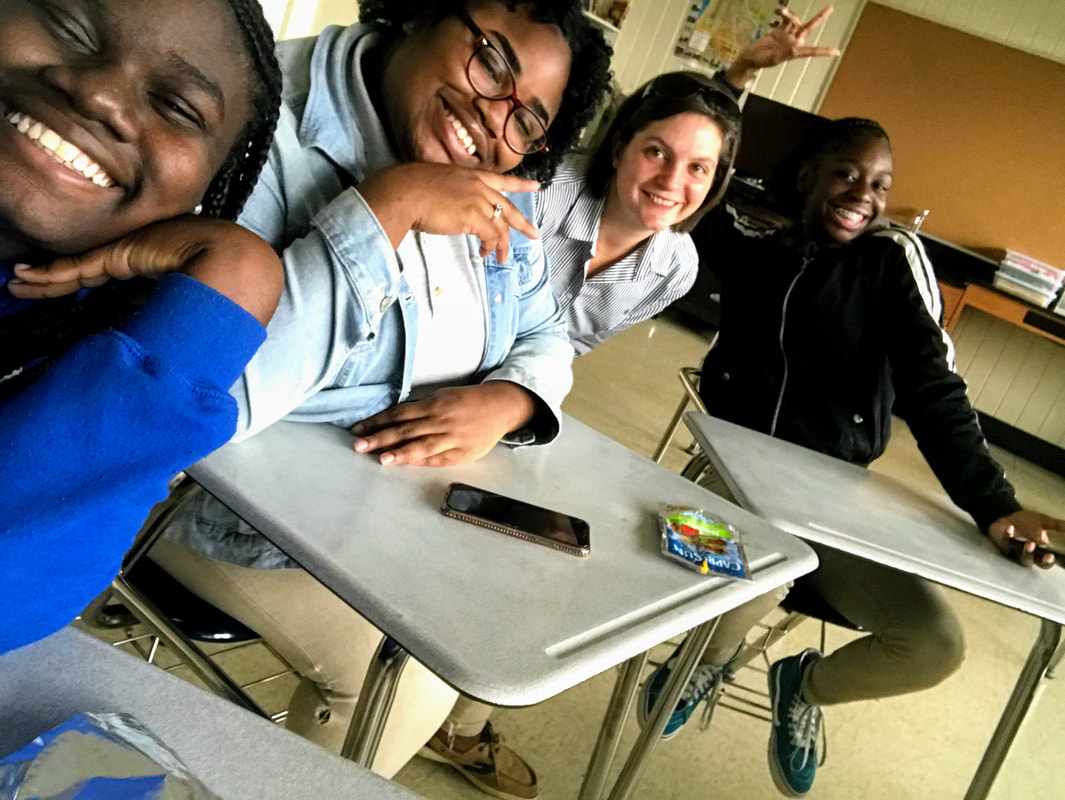
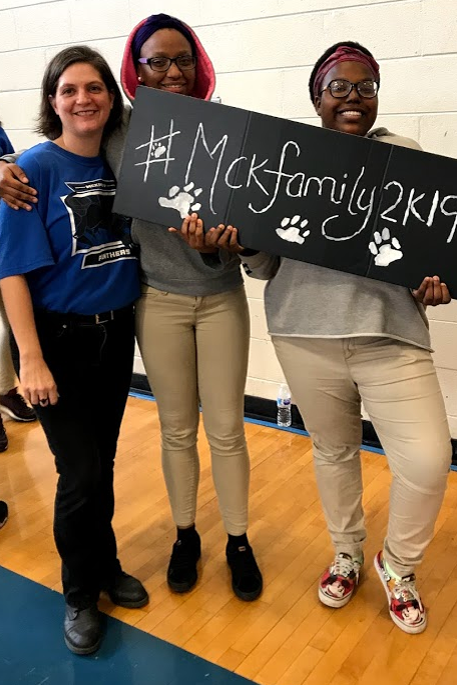
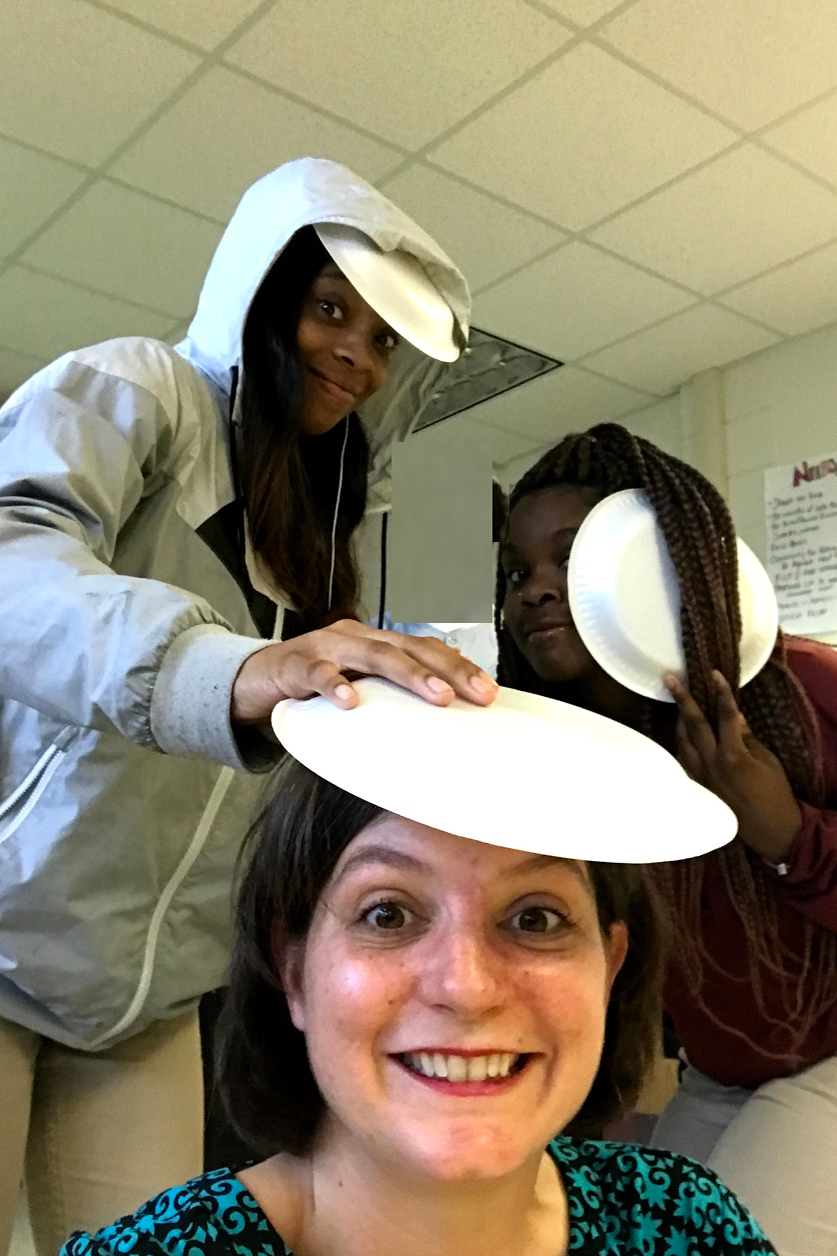
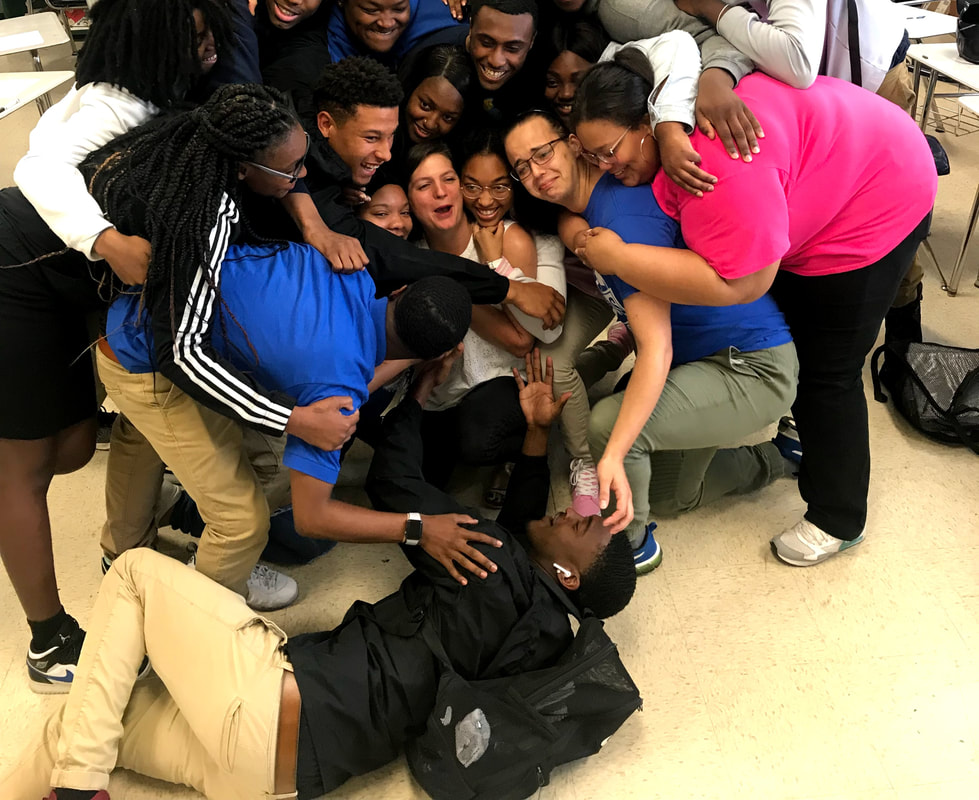
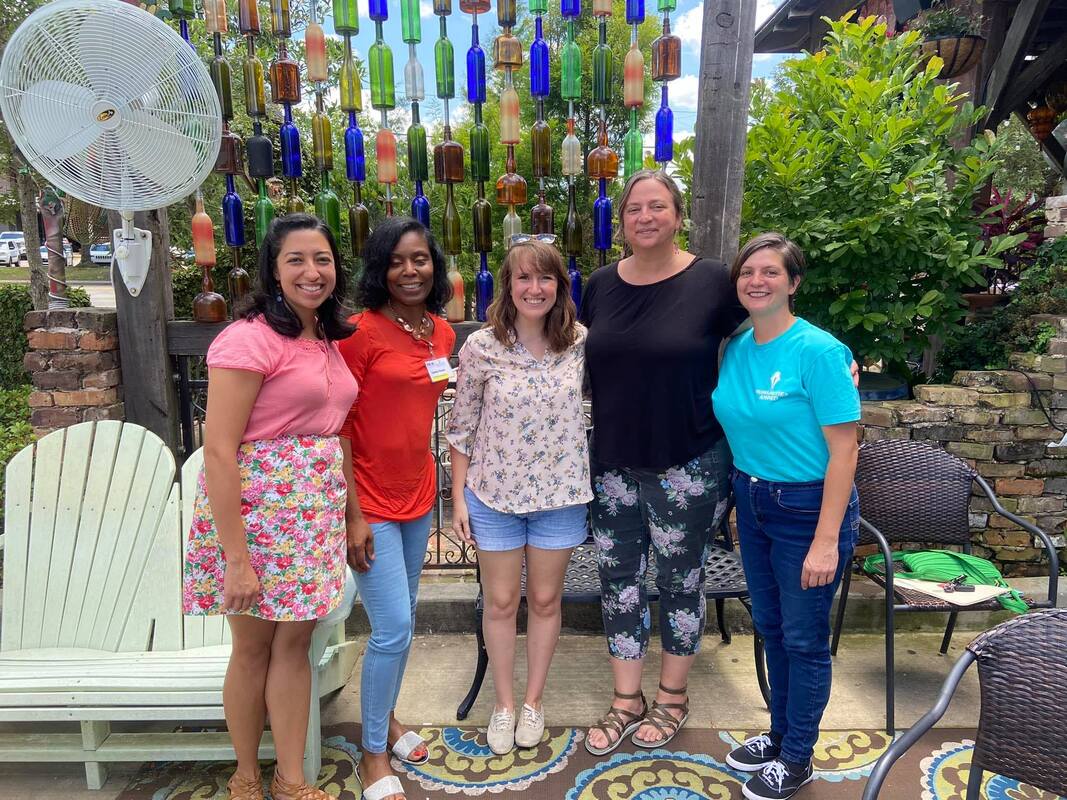
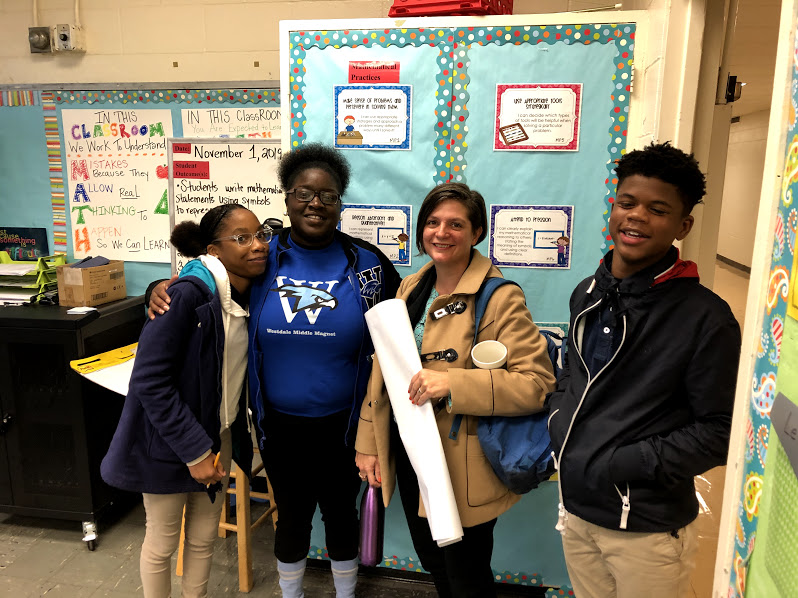
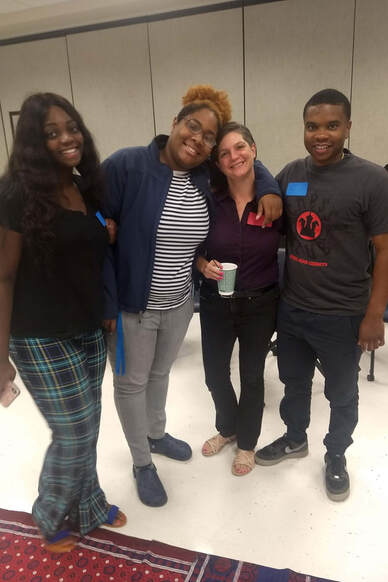
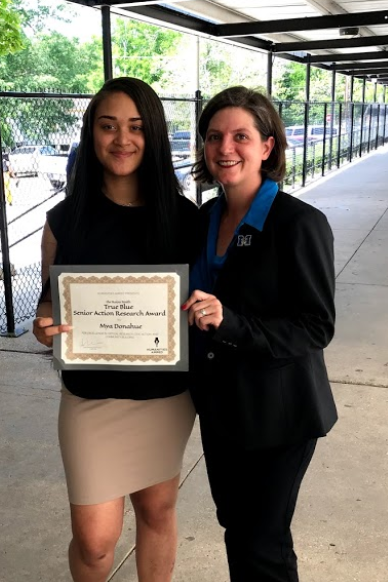
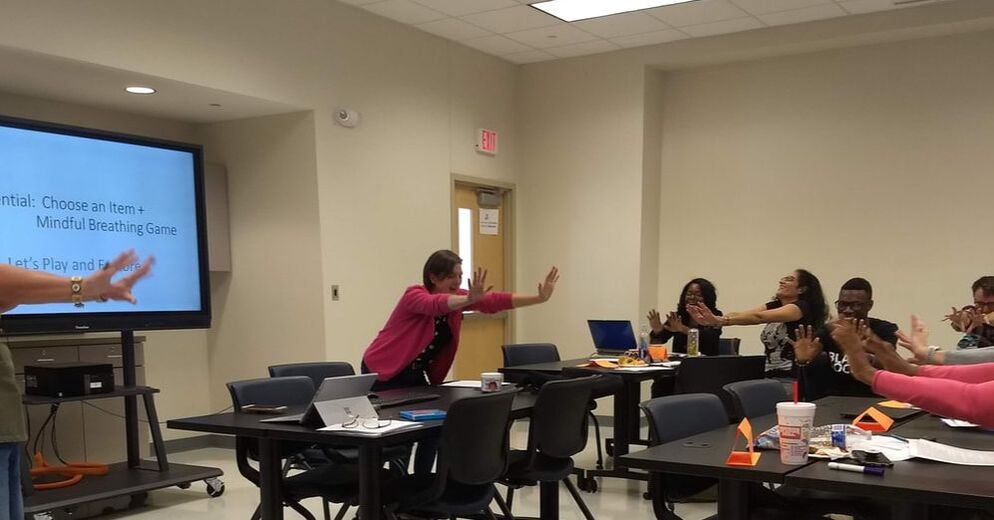
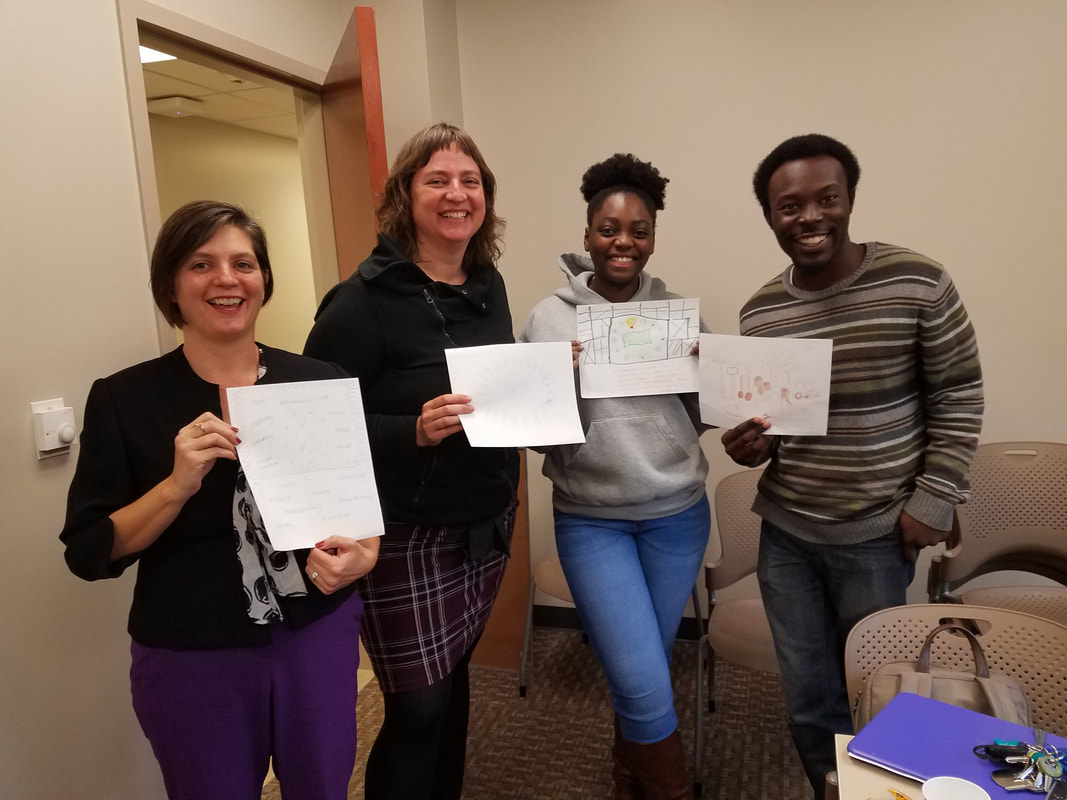
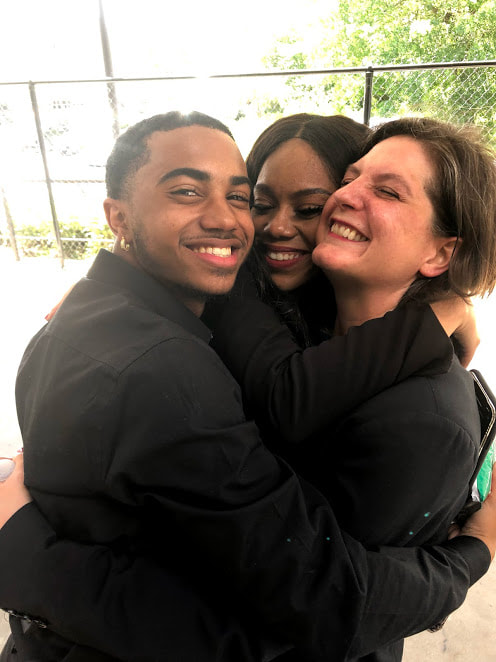
 RSS Feed
RSS Feed
